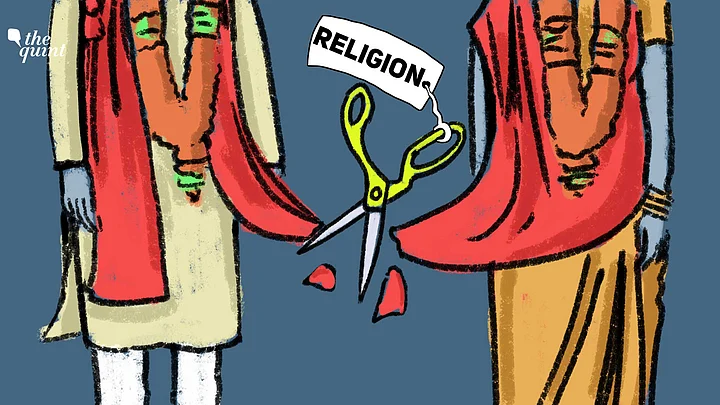In a disconcerting verdict yesterday, the Madhya Pradesh High Court negated an interfaith couple's plea for protection and assistance in formalising their marriage, declaring the union of a Muslim man and a Hindu woman, even under the Special Marriage Act, as illegitimate.
The court's assertion in paragraph 12 of the judgment, that a marriage sanctioned under the Special Marriage Act cannot override personal law prohibitions, is a significant misinterpretation. The judgment reads:
Personal law mandates the observance of certain rites for the consummation of marriage. While the Special Marriage Act exempts such marriages from challenges based on these rites, it does not validate marriages that personal law would otherwise prohibit. According to Section 4 of the Special Marriage Act, marriages are permissible only when the parties are not in a prohibited relationship.
This reasoning is flawed. Section 4 of the Special Marriage Act outlines conditions for lawful marriages, emphasising that both parties must be single, mentally sound, and of legal age, among other stipulations.
The exception concerning "prohibited relationships" has been misconstrued by the High Court to include interfaith unions. The term traditionally refers to blood relations, such as siblings or cousins, not to prohibitions imposed by personal laws.
Religious practice or affiliation does not diminish one's right to consent to a marriage under the Special Marriage Act. Such a marriage entails further implications, including inheritance rights and familial separations. The court's reading of Section 4 is erroneous, as it clearly states, "Notwithstanding any other law currently in effect regarding the solemnisation of marriages."
Thus, the Special Marriage Act allows for the solemnisation of marriages irrespective of personal law objections. Historically, the Act required a declaration of no religious affiliation, which prevented Muhammad Ali Jinnah and Rattanbai Jinnah from marrying under its provisions. This requirement was later amended, allowing individuals of any faith to marry under the Act, without disavowing their religious affiliation.
Judges interpreting secular laws should refrain from religious considerations unless absolutely necessary.
The question here was not about the legitimacy of a Muslim marriage, but rather the ability of a Muslim to marry a non-Muslim under civil law. Resorting to religious law to obstruct a secular marriage is anachronistic and hinders the progress of a society striving for secularism in public affairs.
(Sanjay Hegde is a senior advocate at the Supreme Court of India. This is an opinion piece and the views expressed are the author’s own. The Quint neither endorses nor is responsible for them.)
(At The Quint, we question everything. Play an active role in shaping our journalism by becoming a member today.)
